Freezer Burned: Tales of Interior Alaska
Posted December 18, 2021 at 5:22 am by Tim Dustrude
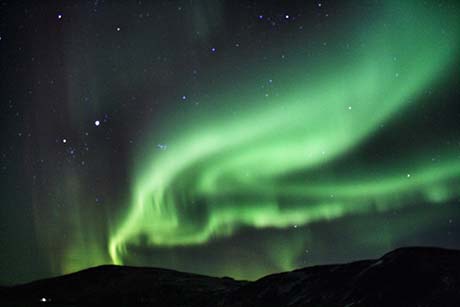
Freezer Burned is an ongoing series on the San Juan Update, written by Steve Ulvi…
(Authors note: this fictional tale of Alaska bush life adventure, grief and redemption, circa the 1980s, will be continued founded upon two previous stories. See Freezer Burned: “No Matter What” and “The Confines of Heaven” for character background.)
The Confines of Heaven (part II)
An unusually sharp deepfreeze gripped a broad swath of the Yukon River basin after a lengthy autumn of golden light. Boreal continental cold is uncompromising. The first winter months high in Alaska’s subarctic, are dictated by the interplay of unpredictable atmospheric forces, never in the same mix. The synergy of moist, low- pressure troughs invading far from the North Pacific to clash with continental high-pressure ridges, stirred by the snaking jet stream, is a meteorological crap shoot for any inland region around 67 degrees north.
The waning days of a subarctic November are an accelerator for serious cold. A so-called “Omega High” had stagnantly domed the Yukon basin for weeks. Again, this morning the air was dense beneath clear skies, forcing the smoke that quietly chuffed from every stovepipe in the village of Tonasket Crossing to hug the ground. Large pans of floating ice spun with a soft crystalline grind along the shore ice that extended from the stair-step mud shelves of the shoreline. Conditions promised an early Yukon River freeze-up.
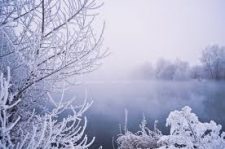
Contributed photo
Wreathed in the mist rising from the moving water in front of the historic Episcopal church, a dozen river boats sat askew; well dusted with wind-blown beach silt, high and dry where they had been tethered to stranded driftwood since the late fall. A stocky man in stained, insulated overalls and untied shoepacs clenched a smoke in his teeth to toss off his jacket to more effectively wrestle a metal skiff onto a long wooden pallet. The pallet was roped to his red ATV hitch on the slope of the exposed beach.
He sweated profusely despite the minus 15F air temperature and breeze. His smoke lipped and eyes squinted, he cussed and half-heartedly kicked at a loose husky dog for lifting a leg on his machine. The yellow splatter froze quickly on the plastic fender and balloon tire as the guy saddled the ATV and lurched forward, tires spinning, to slowly pull the drag back to his cabin. The wandering dog followed, trailing its chain to parade with tail curled high past a tethered mutt lunging and barking psychotically.
More often than not, by mid-November, an infilling of snow would have been slowly blanketing the low country, but the tiny, icy flakes from weeks of cold, dry air had barely whitened the brick solid ground. Edged by willows festooned with trash, a shallow slough curved along the wash-boarded back road, capped by several inches of translucent ice that entrapped odd patterns of hubcap-size grey bubbles, clumps of yellowed leaves. Branches of surrounding alder and cottonwood rubbed and clacked like a thousand chop sticks in the brittle wind.
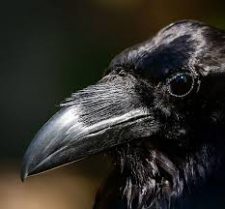
Contributed photo
As the days shortened and socially cohering festivities around Thanksgiving passed, frenetic huskies danced and barked on short chains among frozen turds and large animal bones. Village Ravens tail-chased and graakked overhead to kite down and strut just out of reach of some of the chained dogs. They clearly enjoyed the ancient dance of scavenger and predator.
Sonny Johns turned and stood for a moment after padlocking his entry door, letting his eyes adjust to the dim morning light. The “shotgun style cabin” had been his mother’s place and his rustic family home, before her horrific mauling death up at The Ramparts fish camp, two falls back. It deeply pained Sonny to think of her anguish and fear and his own frantic, futile efforts to prevent her from being viciously borne into the dripping forest gloam. Then she was gone forever. A well-armed search party found her bones piled with forest duff a few days later.
Sonny, now 19, cursed his recent, highly out of character fall from grace in a few days of drunkenness following his live-in girlfriend’s abrupt departure for the bright lights of Fairbanks. As he walked in the somnolent village, he felt the breakdown and distortion of alcohol and could easily discern which families suffered most from the malaise of addiction. Two yammering kids wobbled passed him, bundled on their squeaking bikes. His generation, and the one before, were mostly confused young men angered by their nebulous roles in third world conditions with few viable economic prospects. In contrast, women had always been cultural leaders and a cohering force in the tribe.
The piles of wood and pallets (and chainsaw-dulling, silty drift wood that had been towed to the boat landing weeks back by whining, churning outboards) were shrinking alarmingly at some cabins. Despite the frigid overnight temperatures, some cabins emitted no smoke at all. A handful of families were already sawing and burning their fish rack poles that were essential in summer fish harvest. A Witte generator thumped rhythmically in a sooty, pad-locked building providing electricity for light and appliances as long as the barged-in fuel lasted.
Sonny hated the bootleggers for their soulless, parasitic business while loathing his own weakness. He knew he had so much to be thankful for. During these troubling ‘drinking times’, morning was usually a time of slumber, sickness and guilt after a night of wild behavior and family violence. Sometimes the State Troopers flew in to investigate complaints, make an arrest. Hollering, gunfire and snow machine races on barren gravel roads, sparks flying into the dark wee hours, was impossible to ignore in a tightly clustered village of over 300 mostly related people. Cold, dense air carries sound all too well.
Having gained a grip on himself, after tough love from respected uncles and aunties, Sonny avoided most of the chaos by cutting firewood or hunting back on the flats by day. At night he locked his arctic entry door, ignoring the banging and hollering by rowdies looking for a warm place. And more intoxicants of any kind. His bruised face and wrist still hurt from tussling and being cut in a broken window a week earlier.
As it was a Sunday, old Chief Peter and his wife Eliza, both in their 80s and up early as always, stoked the church barrel stove and reminisced in their guttural tongue about the old subsistence patterns so many decades earlier. Many families would have been itching to travel to distant tent camps to trap fur animals and live off the country until the New Year. It had been much colder, like this, back then. Peter ran his gnarled hand through his thin hair and adjusted his cap at the frosted glass window to watch Sonny walk with purpose in the ground mist. He was one of the favored young men of the extended family for his work ethic and skills in the traditional ways. He was still young, but had been tempered by tragedy and the inner strength that must follow.
Peter recalled the service in which a youthful, long-haired Fairbanks minister had spoken of “god’s loving plan” for taking Sarah away, Sonny’s mom who was one of Peter and Eliza’s loving grand-daughters. Those flowery phrases had troubled Sonny. Soon after that somber day, Sonny had testily challenged old Peter. “Why would God, who created everything, including those grizzly bears, call for a terrible death for a special woman, a leader? Why would such a God stand by while bootleggers, without shame, prey on the sickness of good people?” Peter sat silently, nodding, knowing that his adopted Christian response would not salve Sonny’s pain.
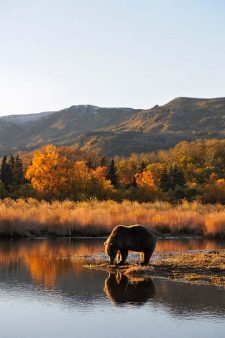
Contributed photo
The old man naturally thought about his traditional cultural beliefs based upon 10,000 years of co-existence with Grizzly Bear; left pawed, an extremely powerful spirit to be respected, women were never to speak its name or look directly at them. The drinking hunters from his village whom he had turned away from the fish camp just days before Sarah was killed, had bragged about shooting at two bears plunging into the brush downriver, maybe wounding one.
Sonny made his way between battered snow machines, ATVs, wood pallets, and fuel drums cloaked in brown grass. Jimmy’s dusty pickup truck was half full of funky smelling trash bags pecked open by ravens. Sonny mounted rotting steps into an arctic entry stuffed with cardboard boxes and dry wood. He rapped smartly and waited. Announcing himself and hearing no signs of life he knocked louder, hearing shuffling and muttering through the battered wooden door.
One of Jimmy’s teenaged sons cracked the door, unsteadily pushing long black hair out of his face, a hand shading squinting eyes with barely a hint of greeting. He sleepily turned back and motioned toward the kitchen, walking barefoot past two girls breathing deeply, wrapped in blankets on a couch. Jimmy and his wife frequently offered a place to sleep and eat for teens avoiding trouble at home. Sonny carefully stepped around a thawing beaver carcass, as big as he had ever seen, lying on cardboard in the entry to the kitchen.
Jimmy, a hard-lived generation older than Sonny wore a frayed Yankees t-shirt, dingy sweat pants and unlaced basketball shoes. He still owned the local high school record for points scored in a basketball season. Sonny had also starred decades later on the same hardwood gym floor. Lean and affable with piercing dark eyes he turned slightly from leaning straight-armed at the formica counter edge, where nailed blankets parted to the morning light coming through frosted window panes. He smiled in saying “Mornin’ dere nephew, some coffee?”
“Sure, alright then”. Sonny unzipped his leather coat, moved a water jug, and slid onto a metal chair with SCHOOL PROPERTY unevenly stenciled on it. Scooping two tablespoons of crusted sugar from an open bowl, he pushed away the reeking, plastic jar lid in front of him, piled with filtered butts. A baby’s thin cry was lovingly shushed behind a closed door. Jimmy’s first grandchild was named for the moral strength of his departed sister, Sarah.
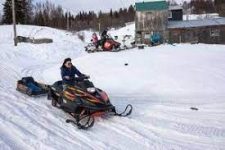 Jimmy raised his chin toward a frypan of cold whitefish in congealed Crisco. Blowing and sipping, Sonny shook his head, “Already ate soup, Unc. I want to charter you up the Kuuk. Get on up past Poker Creek mine soon as soon as it snows. I gotta dog sled. You can tow me and my pack and gear. I will snowshoe and siwash camp from there on up to Alapah. Maybe stop at Hendersons”.
Jimmy raised his chin toward a frypan of cold whitefish in congealed Crisco. Blowing and sipping, Sonny shook his head, “Already ate soup, Unc. I want to charter you up the Kuuk. Get on up past Poker Creek mine soon as soon as it snows. I gotta dog sled. You can tow me and my pack and gear. I will snowshoe and siwash camp from there on up to Alapah. Maybe stop at Hendersons”.
“Guess you’re thinkin’ to get up there to trap with park ranger Nate, I bet? A longways up there, what 80 some river miles, nobody else close? If that allotment of Old Peter’s was closer to the village, we would get Nate booted out so we could use the place”. He smiled ruefully.
“Nate came through last fall after a government float on the upper Kuuk, way up in the Park. He invited me this winter. Good marten and wolf country, caribou too, ya know. I like him OK and can’t be happy here. I have some cord wood on the flats ready to sell, then I can pay you”.
“That poor baby girl suffocated in the sled bag. After Angela flew back here with Henderson, I heard talk after that that Nate’s old man, a preacher, fooled with his own daughter up the Yukon there by Mission City. Maybe Nates not right too, ya know? I saw Ange in Anchorage this fall. You know she hardly smiles anymore. She might never get over that loss of a first child, then seeing our sister Sarah’s death. She don’t even talk about that time up there at Alapah, married and all. She told me she wrote Nate tellin’ him she wants a divorce to start over in the city”.
Sonny shrugged, not having words, finished his mug and promised to be ready in a week. He stepped out, quietly closing the door and zipping his jacket, just as the single-engine mail plane arriving from Fairbanks banked loudly over the wide river, plexiglass glinting in the sun on final approach to the airstrip in the thick morning air.
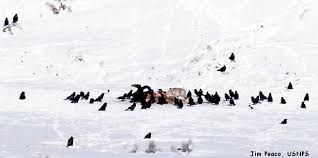
He knew that Stan, the lone Village Public Safety Officer, would be waiting to search suspicious baggage for illegal importation of alcohol or drugs, sometimes by his own relatives. And maybe subtly warn come-to-a-meeting people like the Park Service staff or regional school district officials that it was not a good time to hold a meeting in the village. As Sonny stepped past a short-chained, skinny hound dog with no future lying shivering on a filthy blanket, one dark eye followed him unblinking.
Ten days later, Sonny tightly gripped the sled handle bow, turning slightly sideways to the snowmachine fumes and searing air at 25 mph as Jimmy scouted a route to the Kuuk River confluence. The iconic buttress of forested bluff was visible in the ground fog coming from the black water where to two strong currents met. Completely bundled; insulated coveralls, fur-rimmed hood up, face mask, beaded moosehide mitts over gloves, Sonny balanced on the sled runners skittering over the glare ice and hard sastrugi along the Yukon shore. Exposed and going too fast to run behind, it was the coldest way to travel.
Early freezing shelves had grown from the shore, then collapsed as the water level dropped. The weight of sagging, floating mid-channel ice pushed water out in all those cracks near shore to refreeze as a smoother margin between land and the jumbled river ice. The headlight searched and swung wildly, metal skis of the Polaris clacking. Sonny, despite his fitness had been jolted off the runners, to drag momentarily then let go to avoid injury. The first time Jimmy was so focused on picking a course, that he didn’t notice for a bit, had to loop back, laughing at Sonny jogging to catch up.
The lower Kuuk River was hard against a series of steep bluffs cut by plunging creeks in forested notches along the western bank. Extensive oxbow flats and mixed forest lay beyond the eastern shore. Both men had hoped for better snow conditions and were rewarded by local topographic effects, allowing them to pick up some speed heading away from the broad Yukon River. They passed several village fish camps visible at the edge of the spruce across the football field width of river, where good eddies for salmon set nets were created by the rockfall of unstable bluffs along the deep waters of the western shoreline.
They whined past the barge landing, log cabin ruins and an old caterpillar tractor clothed by willows at Poker Creek Mine where sinuous snowmachine tracks dropped onto the river and sometimes looping up the bank to fish camps. After a couple dozen miles, a large clot of ravens reluctantly lifted with raucous fanfare from the thin snow drifts at the margin of a low, drift wood laced island. Three wolves, one very dark, tails straight behind, swiftly trotted away into a back slough.
Curious, Jimmy followed the days-old machine trails up to the island, ready to stretch, share a thermos of tea and cookies and add gas from a jug tied into the sled. As the dying engine sounds echoed from the bluffs both men stepped toward several caribou carcasses; frozen and ripped opened by scavengers. The dead animals lay in a trampled area of bloody snow, raven whitewash and tufts of grey hair. There was a scatter of spent handgun brass near one. Only the hindquarters and antlers of three white-maned herd bulls had been hacked away, leaving the rest and three young cows to lay.
Always bothered by the unethical waste of healthy animals, Sonny cussed while kicking around, sipping his tea. Jimmy stood silently, cradling his scoped rifle in case the wolves came into the open. “Damn miners! Same outlaw bullshit! What now, two years since the price of gold is up and those fat-cat Texans ramped up operations. Sonny, you heard about that moose hunting group from Fairbanks last year that only landed by the mine ramp and were held at gunpoint for hours?”
“Nope. But Lars Henderson had some hollering and gun pointing troubles near his place last winter. Something bad about one of his daughters running dogs and being bothered on the river. And Nate despises the mining crew’s spring trips to poach sheep and run wolves near the cliffs above Alapah Creek. He hates them but hasn’t decided to risk turnin’ ‘em in”.
Dusk settled in the early afternoon. Soon it would be dark and Sonny wanted to get a few more miles up before Jimmy decided it was time to turn back. Then he would be on his own. He was more than ready to embrace the solitude.
You can support the San Juan Update by doing business with our loyal advertisers, and by making a one-time contribution or a recurring donation.
Categories: Freezer Burned, Nature, People, Weather, Wildlife
One comment:










One comment...
Like this Article, thank you
By submitting a comment you grant the San Juan Update a perpetual license to reproduce your words and name/web site in attribution. Inappropriate, irrelevant and contentious comments may not be published at an admin's discretion. Your email is used for verification purposes only, it will never be shared.